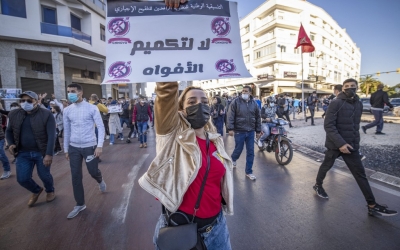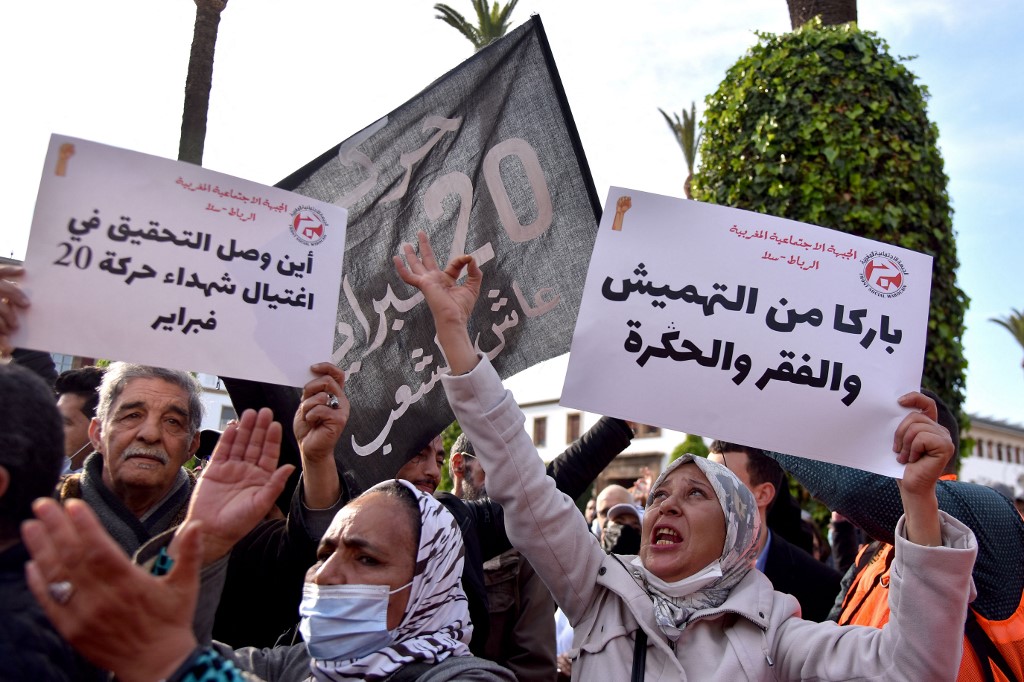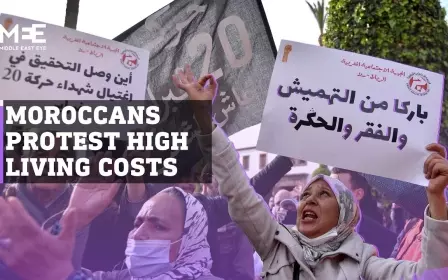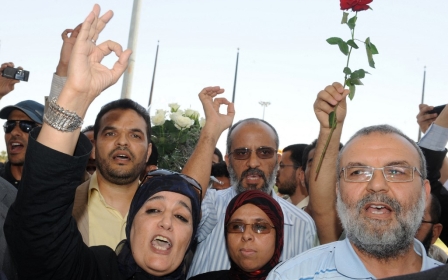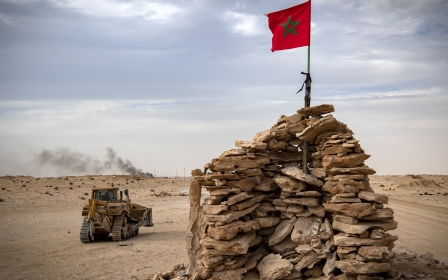Morocco: Mohammed VI's silence on the country's woes speaks volumes
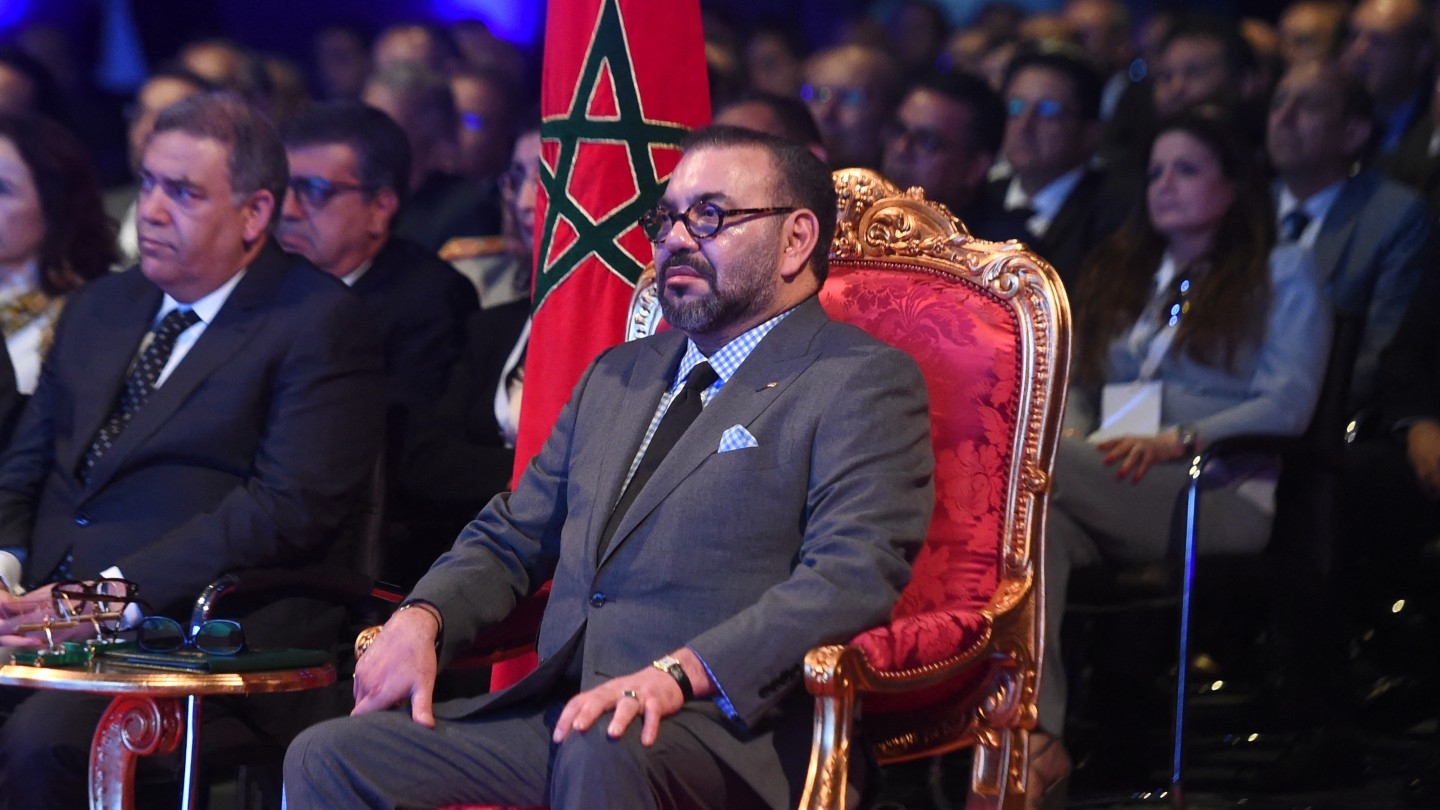
Despite palace propaganda vainly attempting to hide the government’s lack of action, Morocco is sinking into an unprecedented socioeconomic crisis: rising living costs, deepening drought - the worse the country has experienced in decades - and soaring fuel and grain prices on international markets, barley and wheat, in particular.
The sovereign has not even deemed it necessary to make an appearance, let alone take any action to alleviate the kingdom’s high costs of living
Not to mention a range of other alarming indicators, from the growing trade deficit to rising unemployment rates (rising among graduates from 18.5 percent to 19.6 percent), growing public debt (nearly 80 percent of GDP), dwindling foreign exchange reserves (covering only six months of imports of goods and services), decreased direct foreign investment (10bn dirhams, or about €1bn, down seven percent compared to the previous year), and declining economic growth (just over one percent according to the IMF, as opposed to the previous forecast of three percent).
This sorry state of affairs reflects the failure of an irresponsible regime that casually amasses wealth and enjoys a luxurious lifestyle while the overwhelming majority of Moroccans are seeing their purchasing power dwindle, day after day.
Yet the sovereign has not even deemed it necessary to make an appearance, let alone take any action to alleviate the kingdom’s high cost of living. It boggles the mind that the monarch would simply sit back and watch.
That said, collusion between Morocco’s business and political elites is all too familiar. What's more, it is encouraged by the kingdom’s foremost economic power, Mohammed VI himself, especially since the Islamist Justice and Development Party (PJD) was ousted at the ballot box.
New MEE newsletter: Jerusalem Dispatch
Sign up to get the latest insights and analysis on Israel-Palestine, alongside Turkey Unpacked and other MEE newsletters
In short, in Morocco, public affairs are controlled by business politicians, much to the displeasure of democratic forces opposed to the regime but silenced by security forces fearful of the threat of escalating protests.
'Smokescreen'
Contrary to the usual practices of democratic nations, where in times of crisis heads of state intervene to reassure citizens and attempt to mitigate the effects of economic and social stagnation, the Alawite monarch, who has been off the radar for quite some time, seems to have so thoroughly abandoned political life that the question of who is really in charge begs to be answered.
Excepting a rare public works inauguration or two, such as the launch in April of Morocco’s Ramadan solidarity operation, Mohammed VI isn’t much of a communicator, particularly in times of crisis.
However, he jumps on any opportunity he can to congratulate a medal-winning athlete or a victorious football team. Clearly, for him, the national football team’s World Cup qualification takes precedence over the purchasing power of impoverished Moroccans.
An April 2019 Oxfam report ranked Morocco as the most socially unjust country in North Africa, and the pandemic only widened the wealth gap, heightening problems of tax injustice, gender disparity and access to education, health and work.
“Royal projects” could arguably provide a response to the nation’s social crisis. The project for the generalisation of social protection, and medical coverage, in particular, comes to mind. The project, however, is clearly a “smokescreen” and is hardly likely to produce results in a country patently lacking both sufficient hospital infrastructure and qualified medical personnel.
On that count, the numbers speak for themselves: the national health budget in Morocco represents no more than six percent of the overall national budget, whereas in Algeria it is 12 percent (the World Health Organisation recommendation is 15 percent).
Those who boast about the monarchy’s timely commitment to universal healthcare access would do well to wonder why it took the sovereign nearly two decades to launch his “social project”. And why, moreover, he opts to go abroad for medical treatment if he puts so much stock in the Moroccan health system.
State of inertia
Against a global backdrop of geopolitical and economic uncertainty, the Moroccan executive has lapsed into an astonishing state of inertia with regard to the nation’s growing social crisis.
In a country plagued by endemic corruption, the executive appears favourable to granting protection to crooked elected officials and looters of public funds
And for lack of an exit strategy to the crisis, the authorities are making vigorous efforts to quell growing social unrest. They did so in May when they banned a countrywide protest march organised by the Social Action Front (FAS), in response to the “high cost of living, the repression of freedoms and the normalisation of relations with Israel”.
Needless to say, Morocco in recent years has seen an unprecedented deterioration of human rights, as noted in the 2021 report by the Moroccan Association for Human Rights (AHDH).
And with the Moroccan cash economy in its death throes, the regime continues to rely on remittances from Moroccans residing abroad, net tax revenues and public debt.
The fact is, the government has no clear plan of action and simply hopes to weather the current crisis, notably through potential travel and tourism revenue, though levels remain far below those corresponding to the same period of 2021 (down by 22 percent).
Lack of vision
The regime lacks the vision needed to tackle the socioeconomic crisis engulfing the country, a short-sightedness that calls into question the royal commission’s much-celebrated report for a “new development model”.
Particularly since the government has yet to unveil a plan of action laying out the model’s social, economic, cultural and environmental principles, excepting an umpteenth national education reform project (2022-2026) hastily announced by Chakib Benmoussa, head of the commission and minister of education.
This is another example of the cynicism of the regime that continues to advocate illusory development - growth that in no way affects the lives of Moroccan citizens - and diplomatic achievements – with the conflict in Western Sahara still hanging in the balance in the UN, and the Biden administration content for the moment to open a US consulate in Dakhla, mainly for trade purposes.
The fact is, the social crisis in the kingdom is here to stay, with one in every two Moroccans affected by poverty, according to the official National Observatory of Human Development (ONDH) in its 2021 report, and many of his majesty’s subjects reduced to rummaging through public refuse in search of food - not that the governing elite are overly bothered by it.
Economic deregulation
The same line of reasoning, maintaining that the nation’s alleged resilience will keep the regime safe from social implosion, is parroted among the ranks of an out-of-touch analysts preaching economic deregulation, while calls for greater accountability and combating corruption are put on the back burner.
The ruling party’s sudden decision to withdraw the bill requiring members of parliament to declare their assets, on the grounds that it wanted to “ensure its improvement”, is a case in point. The bill was initially drawn up to advance moral integrity in public life by combating the endemic corruption that deprives the Moroccan economy of a crucial source of revenue.
In April, the justice minister and head of the Authenticity and Modernity Party (PAM, a centre-left party, backed and directed by the monarchy), Abdellatif Ouahbi, threatened to strip non-profit organisations of the right to file a complaint against elected officials, a “prerogative”, Ouahbi claimed, that should be the exclusive right of the minister of the interior.
Thus, in a country plagued by endemic corruption - Transparency International assigned it a “highly corrupt” ranking in 2022 - the executive appears favourable to granting protection to crooked elected officials and looters of public funds. It is hardly surprising that the kingdom is the second biggest enabler of tax evasion in North Africa.
In the meantime, as the affluent classes mull over luxury overseas travel offers, the poor are left to fend for themselves and, as prices continue to soar, few can afford the upcoming Eid al-Adha festivities, already affected by skyrocketing mutton prices.
But the governing elite of business politicians is having none of it and declines any responsibility in the current crisis. The king, for his part, seems completely oblivious to the present social crisis that, in time, is likely to take a political turn.
On 16 June, the palace announced that Mohammed VI was ill with Covid-19, reigniting the debate on the monarch’s health and reminding us how little we actually know about it. And so, rumours about the mysterious workings of power in Morocco, which depends on the providential authority of a single man, continue to run rampant.
The opinions expressed in this article are those of the author and do not necessarily reflect the editorial policy of Middle East Eye.
This article has been translated and condensed from the MEE French edition.
Middle East Eye delivers independent and unrivalled coverage and analysis of the Middle East, North Africa and beyond. To learn more about republishing this content and the associated fees, please fill out this form. More about MEE can be found here.



